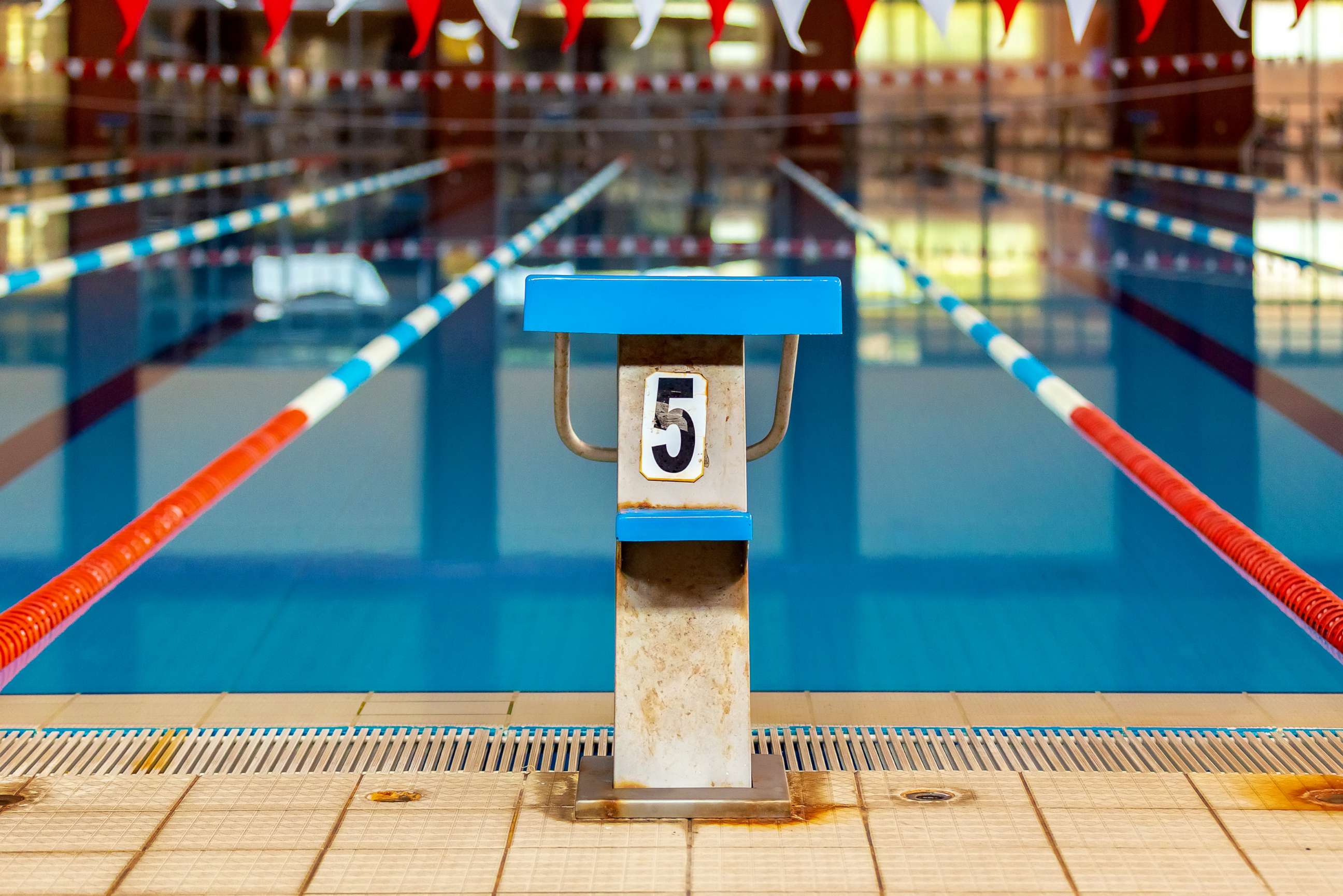Swimmer’s wrongful disqualification raises concerns about policing girl’s bodies
An Alaska senior had her win disqualified and then reinstated over her swimsuit.
A top high school swimmer in Alaska was disqualified in her heat due to a uniform violation even though she was wearing the same school-issued uniform as her teammates.
A referee disqualified Breckynn Willis, 17, after she won the 100-yard freestyle with no penalties for what swimmers refer to as a "suit wedgie."
For the senior and swim team captain of Anchorage's Dimond High School, it is the way her swimsuit fit during her state championship swim meet Friday.
The referee's decision has brought a larger conversation around uniform expectations and body discrimination into question. Willis has a curvier body type and is of mixed race.
Lauren Langford, head swim coach at West Anchorage High School and a former coach of Willis and her sister, Dreamer Kowatch, strongly opposed the decision and overall expectations of modesty for high school athletes.
After hearing about Willis' disqualification, Langford told ABC News that she felt a range of emotions.
"I just closed my eyes and hung my head down. I felt disbelief. I felt anger. I felt sadness for the young ladies," Langford said.
Langford also wrote a blog post on Medium in which she explained the situation and how these uniform expectations unfairly policed the bodies of young girls.
"These young swimmers aren't being punished for wearing their suits in scandalous or provocative ways, but rather, because their ample hips, full chests, and dark complexions look different than their willowy, thin and mostly pallid teammates,” Langford wrote.
In response to Langford's piece, student athletes from other sports, such as gymnastics, track and field and volleyball, reached out to Langford and expressed similar experiences regarding unfair uniform expectations.
"I've had so many people come to me and say, 'Hey, this is an issue in my sport, too.' They have been thanking me for raising awareness, and believe that if I am able to find success in speaking out against what I perceive as targeting, then maybe they can do the same in their sports, too." she said.
Sandy Searcy, director of sports at the National Federation of State High School Associations, however, pointed out that the uniform rules and expectations are not gender specific.
"Male suits must cover the buttocks and female suits must cover the buttocks and the breasts. There is no distinction as far as gender representation, and the [National Federation of State High School Associations] has required those areas to be covered since the '70s," Searcy told ABC News.
When asked whether the rule is outdated or calls for a reexamination, Searcy emphasized the autonomy school districts and state associations have in these matters.
"We're dealing with 51 state associations, each with their separate culture and norms, and we're trying to provide a consistent message but the suit language hasn't changed in the last 50 years," Searcy said. “If it should change, one of our member schools should submit a rule proposal to the rules committee, which meets every year. Until that happens, we will attempt to follow the rules that are in place to the best of our ability."

Langford agreed that there are many ways communities can work together to ensure that a situation like this doesn't occur again.
"It's going to fall on the shoulders of the school district and the state associations to make changes on their end either with the wording of the rule, or to get rid of the rule entirely," Langford told ABC News.
She said the ample opportunities for school teams to get involved with making school uniform decisions and involving swimsuit manufacturers into the conversation may be helpful.
"Beyond [school districts], we should make sure that teams are purchasing suits together, that nobody is wearing their own suits that could draw scrutiny on that level, Langford said. "Another option is that we start having really serious conversations with suit manufacturers about offering more full coverage options in all of the colors and prints that the kids love."
As for Willis, she still remains a state champion on and off paper.
On Tuesday, after the Anchorage School District appealed the ruling, the Alaska School Activities Association overturned her disqualification and had all team and individual points restored. It was overturned on the basis of the referee notifying the coach about the uniform violation after she competed, not before, as the policy states.
While Willis gets to keep her state title, there are still unresolved issues that this case has brought into the spotlight, Langford said.
"It's not about how you look, it's about how hard you work and how tough you are mentally, physically and emotionally on competition day, and that's what people need to focus on," Langford said.
"Anybody who has been or felt targeted, I hope that they look at this incident where somebody stood up and spoke out and saw a positive outcome for taking the risk by gathering the support," she said. "I hope they see it as a beacon so that they can do the same and receive justice for themselves, their teammates or whoever is being singled out unfairly."




